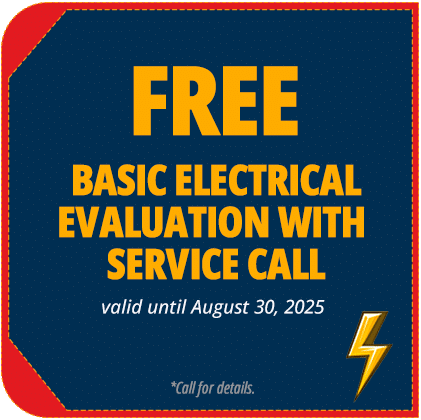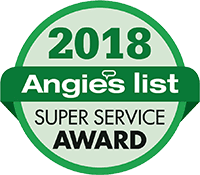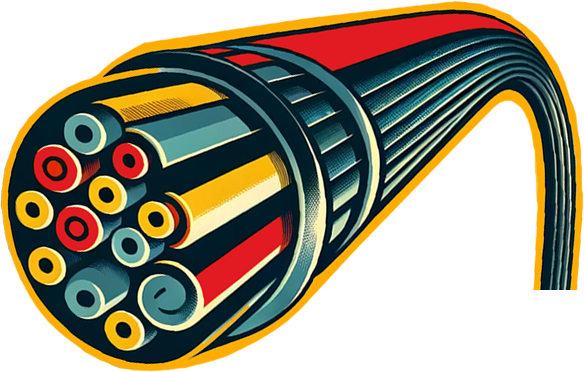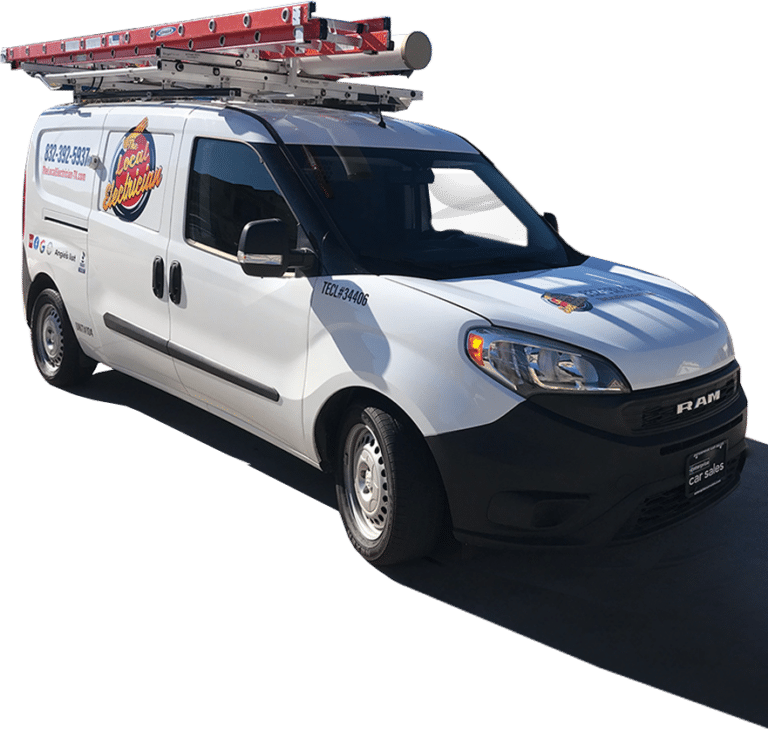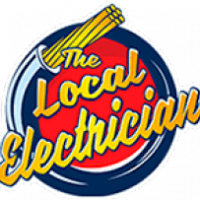Power outages can occur unexpectedly, leaving you without electricity for hours or days. To stay prepared, create an emergency kit with essentials like flashlights, batteries, and non-perishable food. Backup generators and battery packs can keep your home running during extended outages. When the power goes out, stay calm, check for safety hazards like downed power lines, and unplug electronics to prevent surge damage. After power is restored, check for electrical damage and plug devices back in gradually. For reliable backup generator installation and maintenance in Katy, TX, and Richmond, TX, contact The Local Electrician today!
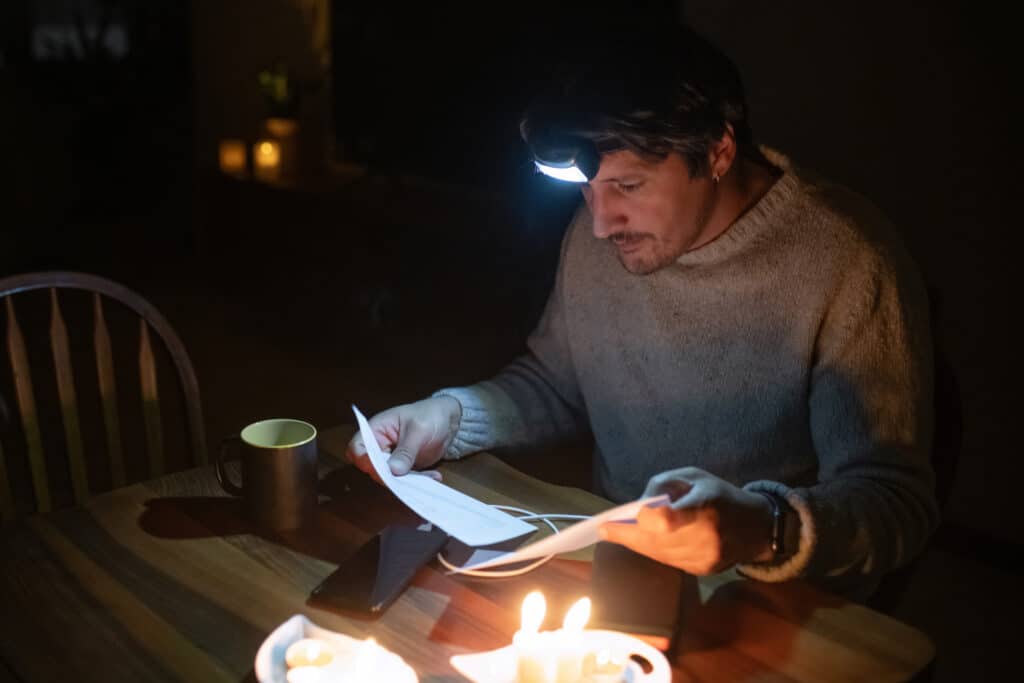
Imagine sitting at home, and suddenly everything goes dark—the TV shuts off, the lights flicker out, and you’re left wondering what to do next. Power outages can strike without warning, leaving you in a tough spot.
But with a little preparation and the right know-how, you can handle a power outage like a pro. In this guide, we’ll cover everything you need to know about staying safe and comfortable during a power outage, from prepping ahead of time to what steps to take when the lights go out.
What is a Power Outage?
A power outage is when the electricity that powers your home, neighborhood, or even a whole region unexpectedly shuts off. This sudden loss of power can leave you without lights, heating or cooling, and the ability to use most of your electrical devices.
Depending on the cause, a power outage might last just a few minutes, several hours, or even days. Understanding what a power outage is, why it happens, and how it can impact your daily life is the first step in being ready to deal with one.
Common Causes of Power Outages
Power outages can occur for various reasons, and understanding these can help you be better prepared. Here are some of the most common causes:
- Severe Weather: Whether it’s a thunderstorm, hurricane, or extreme heat or cold, severe weather can wreak havoc on power lines and electrical infrastructure. High winds can knock down power lines, while lightning strikes can damage transformers, causing widespread outages.
- Fallen Trees: During storms, trees or large branches can fall onto power lines, causing the electricity to cut out. This is especially common in areas with many large trees or during intense storms when the wind is strong enough to uproot them.
- Equipment Failure: Power outages aren’t always caused by external factors. Sometimes, the equipment that delivers electricity to your home, like transformers or circuit breakers, can fail. This might be due to age, poor maintenance, or an unexpected malfunction.
- Planned Maintenance: Occasionally, utility companies will schedule maintenance work that requires temporarily turning off the power. While these outages are planned and often communicated in advance, they can still be inconvenient. However, they’re necessary to prevent larger, unplanned outages down the line.
Curious about electrical issues that can lead to outages? Check out our video ‘Frequent Electrical Issues | Electrical Services‘ to learn more about signs of an overworked system and how to protect your home.
Preparing Before a Power Outage
Being prepared for a power outage can make a big difference in how you handle it. Here’s how you can ensure you and your family are ready:
Create an Emergency Kit
An emergency kit is your go-to resource during a power outage. It should include essentials like flashlights, extra batteries, a first-aid kit, bottled water, non-perishable food, and any necessary medications.
Think of it as your survival pack for the first 24-48 hours of an outage. Having everything in one place will make it much easier to stay safe and comfortable when the lights go out.
Backup Power Sources (Generators, Battery Packs)
Investing in a backup power source, like a generator or battery pack, can be a lifesaver during an extended power outage. Generators can keep your refrigerator, heating or cooling systems, and other essential appliances running.
If you go this route, make sure to use generators safely by placing them outdoors and away from windows to avoid carbon monoxide buildup. Battery packs are great for keeping smaller devices like phones and laptops charged, helping you stay connected during the outage.
Know Your Power Company’s Contact Information
Always keep your power company’s contact information handy. In areas like Katy, TX, and Richmond, TX, knowing how to get in touch with your local utility provider can be crucial.
You can report outages, get updates on the situation, and find out when power might be restored. Having this information easily accessible ensures you won’t be left wondering what’s happening or when things will get back to normal.
Steps to Take During a Power Outage
When the power goes out, it’s crucial to stay composed and follow specific steps to ensure your safety and comfort. Here’s what you should do:
Stay Calm and Assess the Situation
The first thing to do during a power outage is to stay calm and take a moment to gather your thoughts. Look around your home to check if only your house is affected or if the entire neighborhood is experiencing the outage.
If it’s nighttime, you can glance outside to see if streetlights or your neighbors’ lights are still on. This can help you figure out if the issue is localized to your home or if it’s a broader problem. Knowing the scope of the outage will help you decide your next steps.
Check for Safety Hazards (e.g., Downed Power Lines)
After assessing the situation, it’s important to check for any safety hazards that might have occurred during the outage. If the power outage was caused by a storm, there might be downed power lines, which are extremely dangerous.
Stay far away from any downed lines, as they can still carry electricity even when the power is out. You should also check your home for other potential dangers, such as gas leaks or water damage. If you spot any hazards, report them immediately to your utility company or emergency services.
Preserve Food and Water
Preserving your food and water supply during a power outage is essential, especially if the outage lasts longer than a few hours. To keep your food safe, try to avoid opening your refrigerator or freezer unless absolutely necessary, as this helps maintain the cold temperature inside.
A full refrigerator can keep food cold for about four hours, while a fully stocked freezer can stay cold for up to 48 hours. If you expect the outage to last longer, consider transferring perishable items to a cooler with ice. It’s also a good idea to have bottled water on hand in case the outage affects your water supply.
Unplug Electronics to Prevent Surges
During a power outage, it’s wise to unplug your electronics and appliances to protect them from potential power surges when the electricity is restored. Power surges can damage sensitive electronics, so unplugging them during an outage can save you from costly repairs or replacements.
Leave one light on, though, so you’ll know when the power comes back. This small step can help prevent damage to your devices and give you peace of mind. Once the power is restored and stable, you can safely plug your devices back in.
Use Alternative Light Sources (Flashlights, Candles)
When the lights go out, finding a safe source of light becomes a priority. Flashlights are your best option, as they provide light without the risk of fire. Be sure to have extra batteries on hand to keep them working throughout the outage.
If you use candles, place them in sturdy holders and keep them away from anything flammable, making sure they’re not left unattended, especially around children or pets.
Battery-operated lanterns or headlamps are also useful for lighting up larger areas of your home and keeping your hands free to perform other tasks.
Stay Warm or Cool Depending on the Weather
Your comfort during a power outage will greatly depend on the current weather conditions. If it’s cold outside, layer up with warm clothing, blankets, and even sleeping bags to retain heat.
Try to stay in one room and close the doors to keep the warmth in. If the outage occurs during a hot spell, stay in the coolest part of your home, drink plenty of water, and avoid strenuous activities to prevent overheating.
Using battery-powered fans or applying damp cloths to your skin can also help keep you cool until the power is restored.

Staying Informed During a Power Outage
During power outages, staying informed is crucial for your safety and peace of mind. Knowing what’s happening and when the power might be restored can help you make the right decisions. Here are some tips on how to stay updated and connected during a power outages:
How to Stay Updated on the Situation (Radio, Smartphone)
One of the best ways to stay informed during a power outage is by using a battery-powered or hand-crank radio. Radios can provide you with real-time updates from local stations about the power outage, including safety tips and estimated restoration times.
If you have a smartphone, it can also be a valuable tool during a power outage. Make sure your phone is fully charged before the power outage hits, and consider having a portable charger or power bank ready.
You can use your phone to check news websites, social media, or your power company’s app for updates on the power outage. Just be sure to conserve your phone’s battery by limiting usage to essential tasks during the power outages
Communicating with Family and Neighbors
Staying in touch with family and neighbors is important during power outages. Make sure everyone in your household knows where to find emergency supplies and how to stay safe.
If you have elderly neighbors or those with young children, check on them to see if they need any assistance during the power outages. Establish a communication plan with your family members, especially if you’re not all together when the power outage occurs.
You can use text messages or phone calls to stay connected, but remember to conserve your battery if the power outage is expected to last a long time.
If you’re in an area with poor cell service during the power outages, walkie-talkies or two-way radios can be a good alternative for staying in touch with those nearby.
After the Power Outage
Once the power outages are over and the electricity has been restored, it’s important to take a few steps to ensure everything in your home is functioning properly. Here’s what you should do after a power outages:
Checking for Electrical Damage
After the power outage ends, the first thing you should do is check your home for any signs of electrical damage. This could include flickering lights, strange odors, or appliances that aren’t working properly.
If you notice anything unusual, it’s best to contact an electrician to inspect your wiring and electrical systems. Even if everything seems to be working fine, it’s a good idea to give your home a thorough check to ensure that there are no hidden issues caused by the power outages.
Powering Up Electronics Safely
When the power comes back on after a power outage, it’s tempting to plug everything back in immediately. However, it’s better to wait a few minutes and then plug in your electronics one at a time.
This prevents your electrical system from becoming overloaded, which could cause other power outages or damage your devices.
Start by plugging in essential appliances like your refrigerator and heating or cooling systems, and then gradually reconnect your other devices. If you notice any unusual behavior from your electronics after the power outages, unplug them and consult a professional.
Restocking Your Emergency Kit
After experiencing a power outage, it’s a good time to review and restock your emergency kit. Check the items you used during the power outage and replace anything that’s been depleted, such as batteries, bottled water, or non-perishable food.
Consider adding any items you wished you had during the power outage but didn’t. This way, you’ll be even better prepared for the next power outage. Keeping your emergency kit well-stocked ensures that you’re always ready for any future disruptions.
Preventing Future Power Outages
While you can’t control when a power outage will happen, there are steps you can take to reduce the risk and prepare your home for future outages. Here are some proactive measures to help prevent future power outages or minimize their impact:
Home Maintenance Tips
Regular home maintenance is key to preventing power outages caused by internal electrical issues. Start by ensuring that your electrical system is up to date and in good condition.
Have an electrician inspect your wiring, circuit breakers, and other components regularly to prevent potential problems that could lead to a power outage.
Additionally, keep trees and branches trimmed away from power lines on your property to reduce the risk of them causing an outage during storms.
By taking care of your home’s electrical system, you can help prevent power outages caused by equipment failure or other issues.
When to Consider a Backup Generator
If you live in an area prone to frequent power outages, it might be worth investing in a backup generator. A generator can provide you with electricity during an outage, keeping your essential appliances and systems running.
There are different types of generators to choose from, including portable models that can power a few key items and larger standby generators that can keep your whole house running.
Consult with a professional to determine which type of generator is best for your needs. Having a backup generator can give you peace of mind and make it easier to get through a power outage with minimal disruption.
Ready for the Next Power Outage? We’ve Got You Covered!
Don’t wait until the next power outage to find out you’re unprepared! At The Local Electrician, we’re here to help residents in Katy, TX, and Richmond, TX ensure their homes are ready for any situation.
From backup generators to reliable home maintenance, our team is just a call away. Contact us today to stay ahead of the next power outage!

FAQ: Common Questions About Power Outages
What Should I Do If the Power Goes Out Frequently?
If you experience frequent power outages, contact your utility company to check for ongoing issues in your area. Frequent outages may indicate a problem with the power grid or your home’s electrical system. Having an electrician inspect your wiring and a backup generator on hand can help you stay prepared.
Is It Safe to Use Candles During Power Outages?
Using candles during power outages is possible, but they come with safety risks. Ensure they are placed in sturdy holders and kept away from flammable materials. Battery-powered lanterns or flashlights are safer alternatives for lighting your home.
How Can I Prepare My Family for Power Outages?
To prepare your family for power outages, assemble an emergency kit with essentials like flashlights, batteries, and non-perishable food. Discuss a plan for what to do during an outage, including how to stay safe and where to find supplies.
How Long Does Food Last in the Refrigerator During a Power Outage?
A refrigerator can keep food cold for about four hours during power outages if the door remains closed. A fully stocked freezer can maintain its temperature for up to 48 hours. To extend food shelf life, avoid opening refrigerator and freezer doors unnecessarily.
Should I Unplug My Appliances During a Power Outage?
It’s wise to unplug appliances during a power outage to protect them from potential power surges when electricity is restored. Surges can damage sensitive electronics, so unplugging them helps prevent costly repairs. Leave one light on so you’ll know when the power returns.










